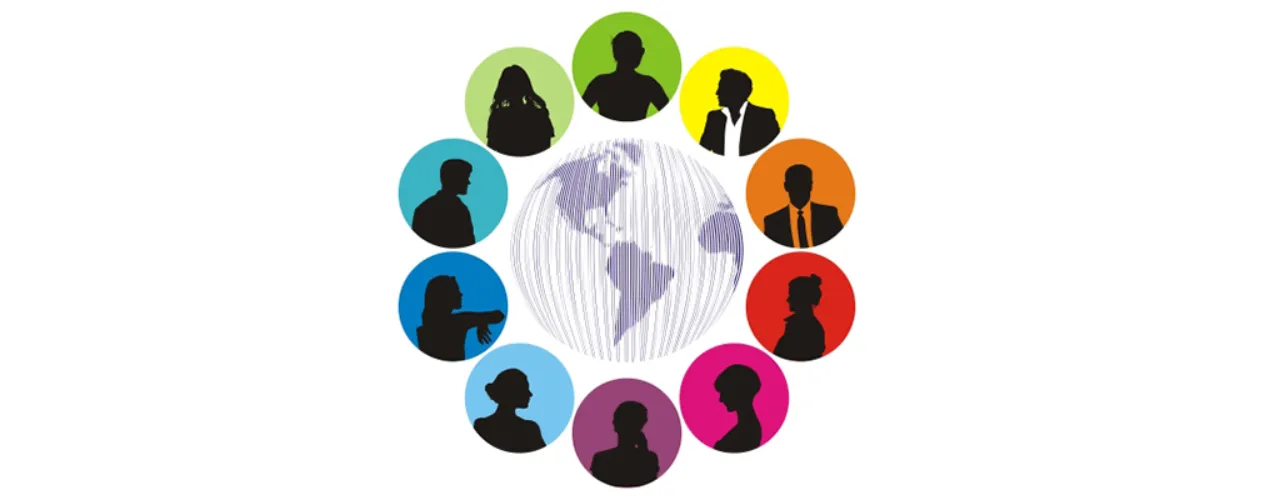Twitter could provide valuable details about transgender health needs, UCLA-led study finds
A study suggests social media can provide insight into the health and social needs of transgender and gender-nonconforming people.

Transgender and gender nonconforming people are at high risk for diseases such as AIDS and are vulnerable to depression and other mental health issues, but may be reluctant to disclose their identities to researchers due to stigma. As a result, very little is known about their health and social needs.
New research from the UC Institute for Prediction Technology in the UCLA Department of Family Medicine suggests that social media could help fill that knowledge gap. The study, published in the peer-reviewed journal JMIR Mental Health, finds that people from these communities use social media at high rates to discuss health and social topics that are important to them. Researchers and public health officials have looked for ways to better understand the health concerns of transgender populations, so social "big data" technologies like Twitter offer an untapped rich source of information that they can use for the benefit of these communities.
"Transgender individuals are at risk for some of the most important public health problems, such as HIV, substance abuse, and depression," said study co-author Sean D. Young, executive director of the UC Institute for Prediction Technology. "There has been little research studying transgender communities because they can be very closed communities who fear stigmatization. Our Institute has studied how to use social big data' to address public health needs and we wanted to apply this work to address the needs of transgender communities and researchers."
Young, who is also a member of UCLA's Center for HIV Identification, Prevention and Treatment Services, AIDS Institute, and Center for Behavioral & Addiction Medicine, and his group have already conducted extensive research into the use of social media such as Twitter and Facebook for AIDS education and prevention, disease tracking and other health-related efforts. For this study, Young and co-author Evan Krueger sought to determine how real-time social media like Twitter could be a tool to better understand the health and social views within these communities.
They collected 1,135 tweets over one day containing relevant hashtags such as "#trans" or "#girlslikeus"; in all, they collected tweets from 13 such hashtags. The tweets, which discussed issues such as violence, discrimination, suicide and sexual risk, were separated into four categories of conversation expressing their sentiments on given topics: positive or negative sentiments in a social context and positive or negative sentiments in a personal context.
Among the researchers' findings:
- 54.71 percent of the tweets were about positive social issues such as Laverne Cox's Emmy nomination for "Orange is the New Black," opportunities to help at an event, improvement in the social condition of transgender individuals, and ally affirmation and support
- 26.34 percent were about negative social issues, among them being discrimination, violence, police mistreatment and ignorance
- 11.10 percent were about positive personal sentiments, such as pride, self-affirmation and interest in one's appearance
- 2.29 percent were negative personal issues, such as suicide, body image dysphoria, depression, eating disorders and sexual risk behavior.
"These tweets provide real-time information that researchers can use to understand transgender individuals' health and wellbeing," said Krueger, a doctoral student in the UCLA Fielding School of Public Health. "In addition, these findings provide evidence that free technologies, such as social media, can be used as secondary sources of information on understudied populations."
"This approach can be used to better understand people, prevent diseases, and predict important trends, including views on policies that affect transgender populations or changes in health," Krueger said.
There are limitations to these findings. For instance, tweeters use the technology in an uncontrolled manner, so it is possible that relevant data were missed. Also, the tweets were anonymous, so it was not possible to gather demographic information about the individuals who wrote them. Finally, pertinent issues addressed by the tweets could change over time as well as across language and cultural groups.
Grants from the UCLA Graduate Division, the National Institute on Aging (5T32AG033533), the Eunice Kennedy Shriver National Institute of Child Health and Human Development (R24HD041022), the National Institute of Mental Health (K01MH090884), and from the University of California Office of the President (President's Catalyst Award for the UC Institute for Prediction Technology) supported this study.